Search
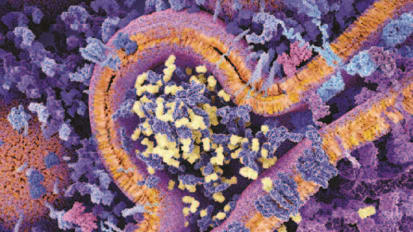 Document
Document
Hematology and Blood and Marrow Transplant
Specialized treatments for acute and chronic blood conditions, from cancers to the full range of non-malignant blood disorders Video
Video
Proven, Practical Prevention: Lower Your Patients’ Cancer Risks – and Anxiety
In this second part of her series on lifestyle and cancer, medical oncologist Natalie Marshall, MD, offers evidence-based answers to common questions on diet, sleep, and other risk-related factors. Video
Video
Tour UCSF Bakar Cancer Hospital
UCSF Bakar Cancer Hospital represents the culmination of the science and expertise that has made our cancer program second to none. Document
Document
UCSF MD Link: Web-Based Communication Portal for Physicians
Our web portal allows referring physicians to securely access their patients’ entire electronic health record, make online referral requests and communicate with our physicians directly and securely. News
News
UCSF Study Finds 25% of Patients with HPV+ Oropharynx Cancer May Require Chemoradiotherapy After Robotic Surgery
In a nearly 10-year retrospective study involving 136 carefully selected patients with HPV-positive (HPV+) oropharynx cancer, UC San Francisco researchers found that one in four may meet possible indications for adjuvant chemoradiotherapy following transoral robotic surgery (TORS).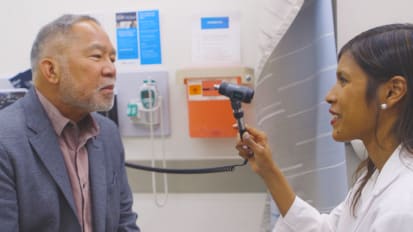 Video
Video
Case Study: Multiple Myeloma and Novel Immunotherapy Approaches
Hematologist Nina Shah discusses the treatment plan of a patient diagnosed with a smoldering multiple myeloma (MM). News
News
UCSF Radiation Oncologist Honored for Prostate Cancer Care and Research
American Society of Radiation Oncology celebrates Mack Roach, III, MD, for profound impact on patient treatment and leadership in cancer disparities treatment outcomes. News
News
Repurposing a Diabetes Medication to Prime CAR T Cancer Targets
By combining CAR T therapy with diabetes drugs, UCSF researchers improve anti-tumor activity in urothelial cancer cells.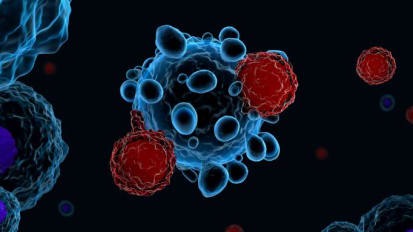 News
News
How AI Found the Words to Kill Cancer Cells
Predictive model allows researchers to encode commands for cells to carry out. Video
Video
Neck Knowledge: Diagnostics and Care for Growths in Adults
Dr. Patrick Ha, UCSF’s chief of head and neck surgical oncology, breaks down the neck’s complex anatomy and provides a case-based discussion of common growths – including developmental cysts, salivary gland disorders, thyroid masses and HPV-related cancers. Included is a useful diagnostic flowchart. Video
Video
A Concise Guide to Colorectal Cancer for Primary Care Providers
This presentation on colorectal cancer – the third most common cancer in the U.S. – unpacks the risk factors (including how to assess family history); reviews symptoms, treatments and survival data; and offers guidance on meeting patients’ post-treatment needs. News
News
Physician Survey Shows Lack of Understanding of the FDA’s Approval Process
Many physicians are unfamiliar with how the Food and Drug Administration’s (FDA) regulates new drugs and medical devices, and they may be under the impression that the data supporting these approvals are more rigorous than they are, according to a national survey of physicians conducted by researchers at UC San Francisco (UCSF). Video
Video
Advances in Breast Cancer Care: Individualized Screening, Treatments and Follow-Up
Karen Goodwin, DO, covers everything from how to answer patients’ questions on mammogram frequency to how to counsel them on breast cancer prevention. News
News
Targeted Therapy, Treatment Disparity Featured at Cancer Meeting
Leading cancer researchers from UC San Francisco presented talks about advances in targeted therapy, cancer genomics, eliminating treatment disparities and other cancer research topics at this year’s annual meeting of the American Association for Cancer Research (AACR) conference...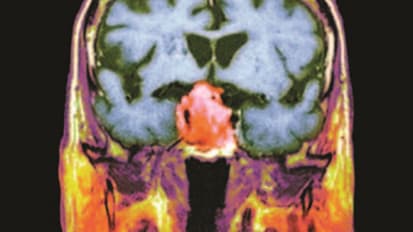 Document
Document
California Center for Pituitary Disorders
The California Center for Pituitary Disorders is the largest practice for pituitary disorders in the United States & performs more pituitary surgeries than any other medical center in the U.S. News
News
Predictive Biomarkers, Tailored Therapy Among Conference Presentations
UCSF’s Eric J. Small, MD, becomes ASCO president at ASCO 2025 meeting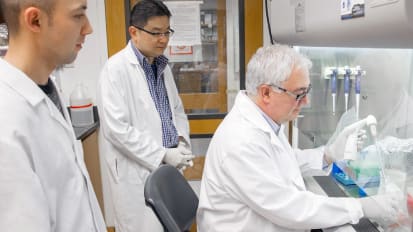 News
News
Screening and Removal of Precancerous Lesions Prevents Anal Cancer
National study led by UCSF is first to show effectiveness of simple strategies to reduce risk of often silent cancer. Video
Video
Cancer Update: Safe Opioid Use and Innovations in Blood Cancer Therapies
In this three-part presentation, UCSF substance use experts offer prescribing strategies and tips on patient communication to ensure pain relief without enabling drug dependence. News
News
UCSF Health Cancer Services Earns National Accreditation from the Commission on Cancer of the American College of Surgeons
The UCSF cancer program has been continuously accredited by the CoC since 1933, demonstrating its commitment to the best outcomes possible for its cancer patients. Document
Document
UCSF Oral Oncology
The UCSF Oral Oncology Clinic offers consultations for the diagnosis, treatment and management of oral complications from cancer treatment. The clinic is the first and only one of its kind in Northern California. Video
Video
Multiple Myeloma: Cutting-Edge Induction and Maintenance Therapies Lead to Improved Response Rates and Survival for Newly Diagnosed Patients
Take a deep dive into therapy options for newly diagnosed myeloma patients: whether three drugs are better than two, the case for lenalidomide maintenance therapy, the many improvements in induction treatment, the future of immunotherapy, and more.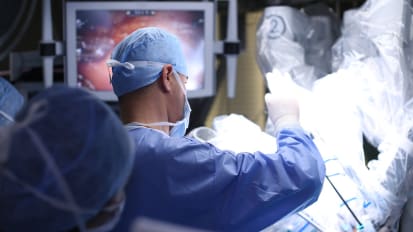 Video
Video
How Technology, Human Values and New Scrutiny of Old Methods Are Improving Cancer Outcomes
Three surgical oncologists offer exciting news on hepatobiliary, thyroid and breast cancers. First up is a look at benefits of minimally invasive robotic surgery for rectal cancers; regional therapy for metastatic GI cancer; 3D virtual surgical planning; and biomarkers for pancreatic cysts. Video
Video
CBC: Optimizing Use of an Everyday Blood Test
Hematologist Neil Dunavin, MD, a specialist in blood cancers and BMT, elucidates the commonly ordered yet imperfectly understood complete blood count, with guidance on which differential type to order and which results call for investigation.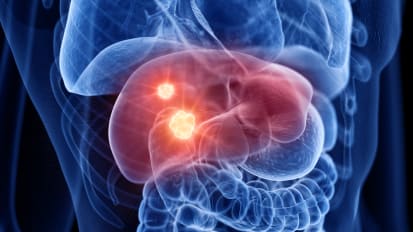 News
News
Advances in Treating Colorectal Cancer With Liver Metastases
Giving new hope to potentially thousands of patients, surgeons at UC San Francisco are now providing lifesaving procedures for many colorectal cancer patients whose cancer has spread to the liver.

